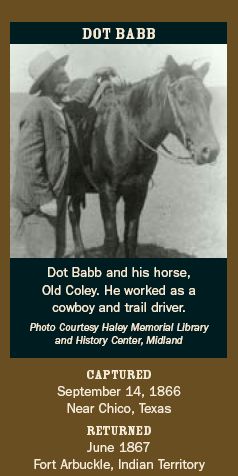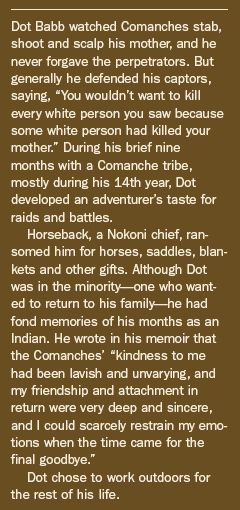and
fighters. Lessons were positive.
Dot
Babb, Banc’s brother, said he
was
never punished for his mistakes.
At home, the children could look
forward
to a lifetime of agricultural
drudgery
with little chance of
advancement.
In Indian camps, the
boys
had an opportunity to become
great
chiefs like Quanah Parker,
whose
mother, abductee Cynthia
Ann
Parker, became a Comanche
bride
and preferred Comanche life.
Hair-raising
escapades were a way to

